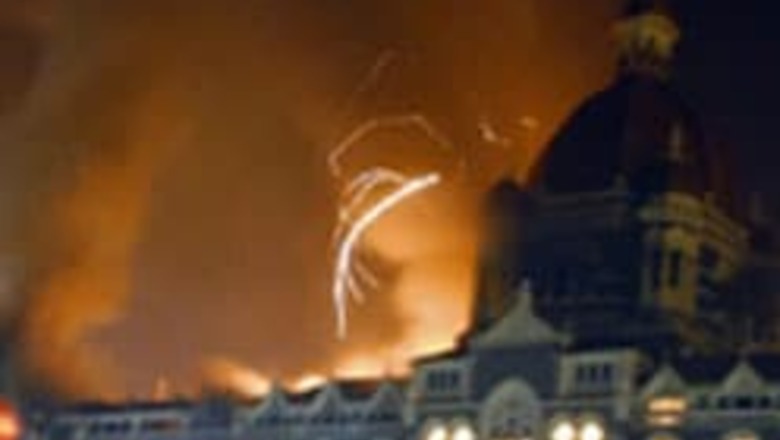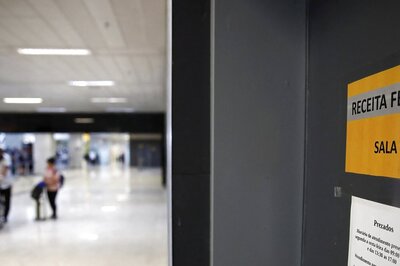
views
New Delhi: A day after Pakistani President Asif Ali Zardari indicated that Pakistan wouldn’t hand over the terrorists wanted by India, alleging there was no proof against them, the Ministry of External Affairs has rejected his claims.
MEA sources say many of the men on the most-wanted list are Indian nationals in any case and that there is nothing Pakistan has to stop them from being deported to India.
Sources say enough evidence have been provided many times in the past to Pakistan, but Islamabad has always claimed the evidence was not sufficient.
Pakistan claims no specific evidence has been provided so far in the Mumbai case.
The list of 20 most-wanted includes Maulana Masood Azhar, who was among the three terrorists released during the Kandahar hijack crisis. His group the Jaish-e-Mohammad is blamed for the attack on Indian Parliament.
India has also demanded Pakistan hand over Lashkar-e-Toiba co-founder Hafiz Mohammad Sayeed who lives in Muridke near Lahore.
Also in the wanted list are Hizbul Mujahideen chief Syed Salahuddin as well Dawood Ibrahim, Chhota Shakeel, "Tiger" Ibrahim Memon, Ayub Memon and Abdul Razzak - all wanted in connection with the 1993 Mumbai blasts.WHAT IS LASHKAR-E-TOIBA?
Lashkar-e-Toiba or LeT is one of the largest Islamic militant groups in South Asia, based in Pakistan.
Security analysts say it is a well-funded and highly organised group that sympathises with al Qaeda.
Lashkar-e-Toiba denied being behind the Mumbai attacks and said it condemned them.
The group was blamed for bomb attacks on markets in New Delhi that killed more than 60 people in 2005, as well as an assault on Parliament in 2001 that brought India and Pakistan to the brink of a fourth war. WHAT IS THE INDIAN MUJAHIDEEN?
Police say the Indian Mujahideen is an offshoot of the banned Students' Islamic Movement of India (SIMI), but that local Muslims appear to have been given training and backing from militant groups in neighbouring Pakistan and Bangladesh.
SIMI has been blamed by police for almost every major bomb attack in India, including explosions on commuter trains in Mumbai two years ago that killed 187 people.
Police said the Indian Mujahideen may also include former members of Bangladeshi militant group Harkat-ul-Jihad al Islami or HUJI.
The group first emerged during a wave of bombings in the northern state of Uttar Pradesh in November 2007, sending an e-mail to media outlets just before some of the bombs exploded.
They have since claimed responsibility for multiple bomb attacks in Jaipur, Bangalore, Ahmedabad and New Delhi. WHAT CAN BE INFERRED FROM THE ATTACKERS' TACTICS?
The Mumbai attacks were unusual in that they involved coordinated attacks by gunmen on multiple targets, hostages were taken, and foreigners were specifically targeted.
Several analysts say these tactics point to Lashkar-e-Toiba as being involved. The attacks on symbolic targets designed to gather maximum publicity, and the specific targeting, point to a group following al Qaeda ideology and tactics.
The attacks also show a considerable degree of sophistication, another factor pointing to an experienced group like Lashkar-e-Toiba.
In May, the Indian Mujahideen made a specific threat to attack tourist sites in India unless the government stopped supporting the United States in the international arena.
The threat was made in an e-mail claiming responsibility for bomb attacks that killed 63 people in the tourist city of Jaipur.
The mail declared "open war against India" and included the serial number of a bicycle used in one of the bombings.


















Comments
0 comment